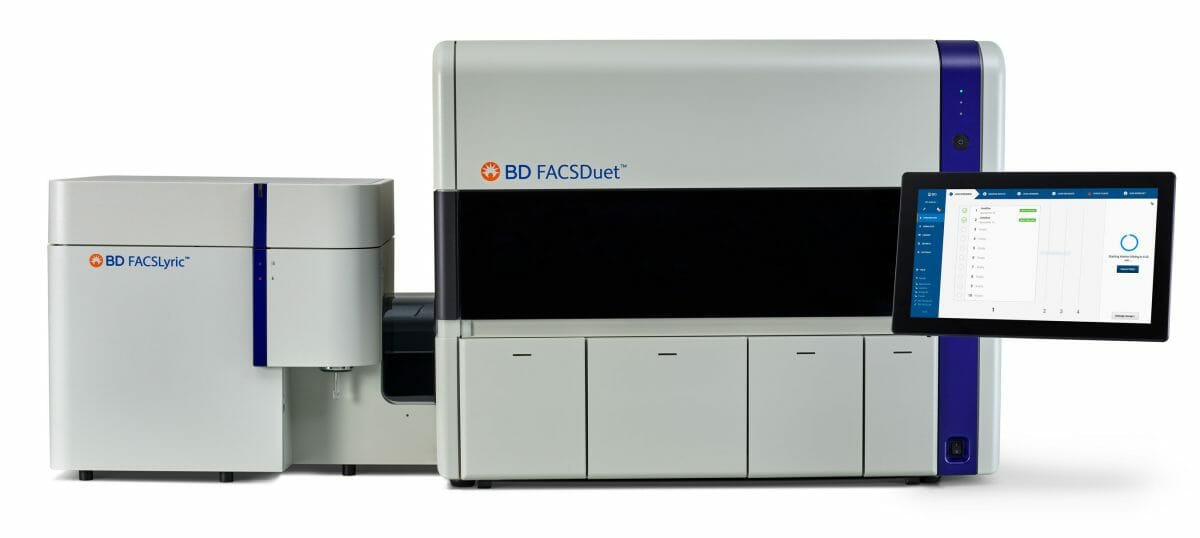BD (Becton, Dickinson and Company) (NYSE: BDX), a leading global medical technology company, announced the worldwide commercial launch of a new automated instrument that prepares samples for clinical diagnostics using flow cytometry, enabling a complete “walkaway” workflow solution designed to improve standardization and reproducibility in cellular diagnostics.
The BD FACSDuet™ Premium Sample Preparation System leverages liquid-handling robotics to automate the entire sample preparation process, for both in vitro diagnostics (IVD) and user-defined tests, including cocktailing, washing and centrifuging – and then automatically transfers samples to the physically integrated BD FACSLyric™ Clinical Flow Cytometry System, without human interaction. By being integrated with the flow cytometer, the BD FACSDuet™ Premium System enables a “walkaway” workflow solution that requires fewer manual steps, fewer resources and less user hands-on time than previous solutions.
Flow cytometry is an essential tool for clinical diagnostics, commonly utilized in the diagnosis and management of diseases like cancer.
“Our clinical customers have long trusted BD and our best-in-class products to standardize every step of the clinical lab workflow – from panel creation to sample preparation to analysis to report,” said Steve Conly, worldwide president, BD Biosciences. “The flagship BD FACSLyric™ Flow Cytometry System is one of the fastest adopted clinical instruments in the world and now together with the FACSDuet™ Premium System, which has achieved IVD status in the U.S. and Europe, we usher in greater levels of automation so that our customers can focus more of their valuable time on analyzing and interpreting samples and impacting outcomes.”
The BD FACSDuet™ Premium System is now available to order through local sales representatives. More information is available at bdbiosciences.com and in the recent BD Biosciences Power of Automation Keynote Presentation.

